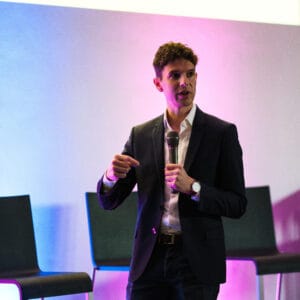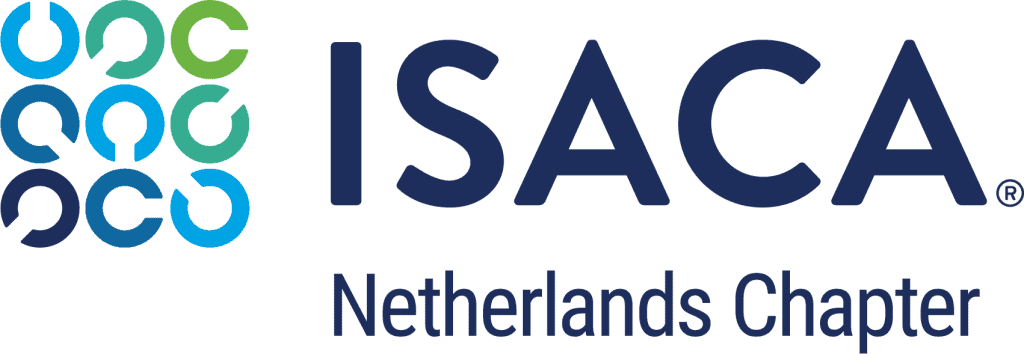By ir. Marc van Meel
The rise of Artificial Intelligence (AI) presents both opportunities and challenges for the auditing profession. Audit professionals now regularly encounter AI systems, be it within client infrastructures, their own organization, or within society. In this era defined by digital transformation, the question arises: What essential skills must auditors, particularly those specializing in IT, cultivate to preserve trust and integrity within our rapidly digitizing society?
Auditing, So Hot Right Now
Auditing has surged into the spotlight recently, driven by the viral phenomenon of First Amendment auditing. First Amendment auditing involves individuals equipped with cameras asserting their rights to film in public spaces, like town halls, libraries, parking lots and post offices. This is typically practiced in the United States, under the First Amendment of the US Constitution. First Amendment auditors document their interactions with law enforcement, public officials and other authorities to showcase transparency and accountability in public spaces. Their actions have sparked debates about civil liberties, government oversight, and the boundaries of surveillance technology. This newfound attention has brought auditing to the forefront of public discourse, emphasizing the critical importance of accountability and transparency in contemporary society.
First Amendment auditors have risen to prominence, amassing substantial followings on platforms like YouTube, where their encounters are shared with a worldwide audience. Opinions on First Amendment auditors vary—some view them as activists shedding light on potential abuses of power, while others consider them provocateurs seeking attention, also known as “clout”. Perhaps the truth lies somewhere in the murky middle.. Nevertheless, their rise to social media stardom [1] underscores broader discussions about the right to film in public and the impact of digital technologies on civil liberties. This discourse extends beyond the United States, as evidenced by recent debates in The Netherlands surrounding the privacy-related issues of smart doorbells [2][3]. Numerous smart doorbells in The Netherlands are illegally capturing segments of public or private space. This violation often goes unenforced by law enforcement. On the contrary, residents are frequently compelled to relinquish footage of their doorbell cameras for usage in criminal investigations [4].
First Amendment auditors expose the profound irony of individuals losing composure when faced with a camera, despite already being under constant surveillance in their workplace or in public. The shift from implicit to explicit control instigates a heightened self-awareness, prompting a change in behaviour. As articulated by philosopher Jean-Paul Sartre, the encounter with the gaze of another person (or a camera) is a deeply unsettling experience which evokes anxiety [5]. Interactions with others can lay bare our vulnerabilities, subjecting us to judgement and objectification. These discussions underscore the interplay of technology, privacy, and freedom of expression, prompting contemplation on the ramifications of heightened surveillance and the crucial role of vigilant individuals and auditors in safeguarding societal rights and liberties in our digital society.
Of Dikes and Highways
The Dutch have long understood the symbiotic relationship between technology and our environment, exemplified by our mastery of water management through dikes and waterworks, which dates back to medieval times. This rich history has not only safeguarded our nation from the ocean’s threat, but has also become a cornerstone of our economy, with leading global companies, such as Boskalis, Van Oord and Dutch Dredging spearing the dredging, maritime infrastructure and maritime services industries. However, as we harness technologies to make our surroundings better accommodate us, we must recognize the reciprocal effects of technology. For example, the majority of content is now consumed via smartphones and tablets. This shift has led to a preference for shorter, more visually-oriented information over traditional long-format writing. If you are holding a print copy of this article, you should consider yourself part of an endangered minority. Similarly, the introduction of automobiles in the late 19th century wasn’t merely about transportation; it sparked numerous societal transformations, fuelling demands for suburbs, road infrastructure, and a decline of public transportation. These changes then also impacted how people work, shop, and spend their free time. The phenomenon of technology shaping society is known as technological determinism.
Let’s consider highways as an example. While highways offered newfound freedom of movement in our industrialized society, they also impose constraints, limiting access to destinations without direct routes and facilitating centralized control over traffic flow and speed. Highways are also mechanisms of control. Technologies have always raised ethical questions about the balance between convenience and human autonomy. As Herbert Marcuse observed, our society’s pursuit of technical progress risks eroding essential aspects of individual autonomy and critical thought [6]. In our advanced industrial society, comfort and efficiency often come at the expense of freedom. Technologies such as highways not only enable greater individual freedoms, but at the same time serve as mechanisms for social control and manipulation. It is therefore crucial to reflect on how technological advancements shape not only our physical environment, but also impact our societal values and fundamental rights.
Today, with the widespread application of AI, we witness an expansion from physical environments into digital environments, with the two becoming increasingly intertwined. The application of AI technology among clients is on the rise, particularly to enable automated and data-driven control processes. This results in reduced manual tasks for employees, smarter detection of potential errors or fraud, and eliminates the need for organizations to rely on sampling methods when reporting to stakeholders, governing bodies and to auditors. This technology holds particular relevance for the future of work of auditing as well. As auditors, we find ourselves increasingly confronted with these technologies at the client’s side, tasked with evaluating their effectiveness. However, the introduction of AI systems significantly impacts workplace dynamics, decision-making processes and collaboration among employees. Instances are emerging where employees feel monitored and, in some cases, even face termination due to algorithmic monitoring and performance scoring [7].
It’s 2024, Where Are All the Robots?
A frequently asked question is why we still don’t have Marty McFly ‘s hoverboard from Back to the Future, or the speeder taxis from Star Wars. As it turns out, we lack not only the driving technologies portrayed in these movies, we aren’t even close to automating the sophisticated driving capabilities required. For a considerable span of time, we have been tantalized with the prospect of fully autonomous (self-driving) cars. Despite recent advancements in AI, such as conversational GPT-models, AI systems still fall short of human-level intelligence. AI thrives in tasks that challenge humans, such as processing and analysing vast amounts data and detecting complex patterns, but falters in cognitive tasks that we perform effortlessly, like doing the dishes or driving a car with finesse – a phenomenon known as Moravec’s paradox [8].
This is because the engineering aspect of AI—the Artificial component—has seen remarkable success, while the cognitive facet—the Intelligence aspect—still lags behind. Current AI systems, leveraging techniques such as deep learning and (self-) supervised learning, boil down to brute-force methods to tackle complex problems. These AI systems rely on vast quantities of historical data and statistical analysis, employing inductive reasoning to derive probability distributions to predict and classify. This approach can be likened to that of a washing machine—a technological marvel in its own right, but hardly possessing the finesse required for tasks like delicately washing a wineglass. While the washing machine achieves better results than us humans, not many people would dare to describe it as intelligent. Don’t be fooled by conversational AI, as from a Data Science perspective, language is considered a form of cheating. Language is bounded and words and sentences carry with them inherent information and implicit assumptions about the world. Language itself is already a high-level model of the world. However, not even the most sophisticated Large Language Models truly grasp basic concepts of reality, they merely excel at convincing you they do. Large Language Models beating the Turing test only proves that the Turing test has become a bad metric for intelligence.
When considering AI from an engineering perspective alone, many challenges appear deceptively simple to overcome. If reality proves too complex to capture in data, it becomes dangerously tempting to simplify reality. For instance, the self-driving car conundrum becomes surmountable by simplifying the environment—further streamlining highway control and eliminating human drivers in favour of inter-communicating autonomous vehicles, altering the environment to eliminate unpredictability. We must tread carefully not to excessively alter our environment to cater to AI systems. In addition to monitoring on the work floor or supermarket [9], we find examples in the emergence of a covert workforce in India, undertaking mundane and repetitive tasks to train AI systems [10], and the environmental impact of AI and large data centres [11]. It is vital to remain vigilant against excessive reshape of our environment to better accommodate AI systems, when it comes at the expense of human autonomy. Auditors hold a pivotal role in this regard.
To Be a True Auditor
What skills does an auditor need in the digital age? In the acclaimed TV series True Detective, the meaning of the titular concept of what it means to be a “True Detective” reveals itself at the very end of the show. It’s only when the main characters break free from the confines of the police force and from societal norms, shedding any preconceptions, that they are able to unravel the murder mystery central to the show. Similar to being a true detective, a true auditor must possess a holistic perspective, capable of stepping outside the confines of established systems to scrutinize every aspect. In accordance to Marcuse’s vision, a true auditor therefor doesn’t just question within the confines of existing frameworks, but is able to challenge the system itself from an external perspective.
While their methods may spark debate, the ethos of First Amendment auditors underscores a relentless, bordering fanatical, pursuit of truth, propelled by an unwavering devotion to safeguarding human rights. A true auditor eschews the confines of personal agendas or abstract ideals. Instead, it is the auditor’s razor-sharp awareness and unyielding scrutiny of detail that imbues their work with legitimacy. A true auditor grasps the perpetual complexity and evolution of our digital society and is not only able to scrutinize individual AI systems or automated processes, but is able to evaluate their larger socio-economic impact.
Sources
[1] https://www.washingtonpost.com/national-security/2023/08/07/cop-watchers-auditors-you-tube-police/
[3] Cameragebruik in en om het huis | Autoriteit Persoonsgegevens
[4] https://nltimes.nl/2024/02/23/smart-doorbells-causing-flood-privacy-complaints
[5] Sartre, J.-P. (2003). Being and nothingness (H. E. Barnes, Trans.; 2nd ed.). Routledge.
[6] Marcuse, Herbert, 1898-1979. One Dimensional Man; Studies in the Ideology of Advanced Industrial Society. Boston: Beacon Press, 1964.
[8] https://en.wikipedia.org/wiki/Moravec%27s_paradox

Marc van Meel
Marc van Meel is Managing Consultant Responsible AI at KPMG, is an experienced Data Scientist and an authority in the field of Digital Ethics. He assists organizations in maximizing the benefits of AI, while effectively managing risks. In addition, he is a sought-after guest lecturer, podcast host, and speaker at conferences.



